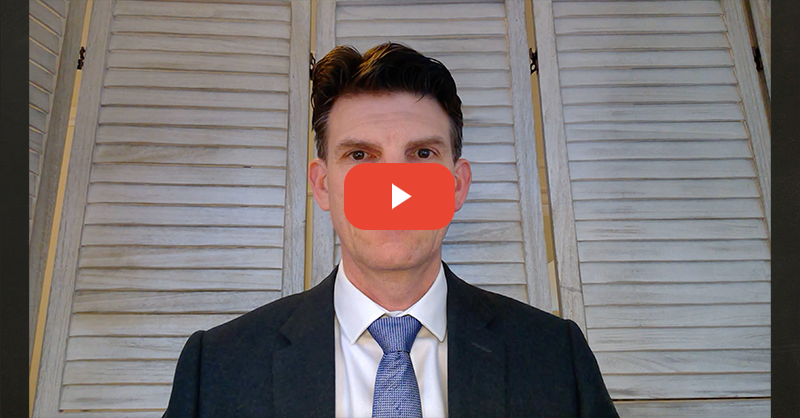Q&A Claiming interest on property destroyed in bushfires and rebuilt as a residential investment property
Knowledge Shop’s help desk helps thousands of accountants and advisers across the country get the answers they need when they need them (want to see how the membership works? Book in a tour with the team).
Here’s a question from one of our awesome members looking at interest deductions for a client who lost their property during the bushfires and then rebuilt it as a residential investment property (some details have been changed to protect identities).
Note that the answer is only applicable to the question asked.
Question
My client, an individual, owns a residential rental property which was destroyed during the 2019-20 bushfires (January 2020). His property loan at that time was $300,000. He borrowed a further $500,000 to rebuild the property, taking his total debt to $800,000. His intention was to always rent the property after construction was completed. Construction was completed in July 2022 and the property was made available for rent from that time.
It appears that TR 2004/4 and the principles established in Steele’s case have been replaced by section 26.102. My understanding is that section 26.102 denies an interest deduction from the time the property was destroyed (January 2020), until the time construction was completed and the property made available for rent (July 2022). Is this correct? If this is correct, we will add the interest to the cost base as a holding cost (section 110.25(4)).
Alternatively, can the interest continue to be tax deductible from January 2020 and if so, please advise section references or tax rulings?
Knowledge Shop's Answer
Dealing with situations like this can be complex and section 26-102 ITAA 1997 does make it more difficult to claim interest deductions during the construction of a rental property, but there are a couple of things that might help here.
There are two issues that need to be considered. You first need to look at whether a deduction would be available under the general deduction rules in section 8-1 ITAA 1997 and secondly whether the relatively new rules in section 26-102 would prevent the deduction from being claimed.
1. Expenses incurred in relation to holding a rental property are not normally deductible under section 8-1 unless the property is rented or genuinely available for rent. However, TR 2004/4 indicates that interest and other holding costs can be deductible while a property is being rebuilt or repaired if:
- The costs are not incurred 'too soon', are not preliminary to the income earning activities and are not a prelude to those activities;
- The costs are not private or domestic;
- The period of outgoings prior to the derivation of relevant assessable income is not so long, taking into account the kind of income earning activities involved, that the necessary connection between outgoings and assessable income is lost;
- The costs are incurred with one end in view, the gaining or producing of assessable income; and
- Continuing efforts are undertaken in pursuit of that end.
2. However, even if a deduction appears to be available under section 8-1, the relatively new rules in section 26-102 can potentially prevent taxpayers from claiming a deduction for expenses incurred from 1 July 2019 if they relate to holding vacant land (including things like interest and borrowing costs) unless those costs were incurred in the course of carrying on a business of the taxpayer or certain other parties. While these rules do not apply to companies, superannuation funds (other than SMSFs), managed investment trusts or certain public trusts, they do apply to individuals, SMSFs and private trusts.
The ATO has issued a draft ruling (TR 2021/D5) on these rules which indicates that holding costs relating to a building are not impacted by these rules, this section only applies to holding costs that relate to land. That is, interest accruing on any portion of the loan that relates to constructing the building should not be impacted by section 26-102.
If any portion of the loan relates to the underlying land then the position is more complex. While this would need to be looked at in more detail, there is a specific exception to these rules for situations where the property has been affected by natural disaster or other exceptional circumstances. The ATO discusses this exception in more detail at the link below:
Deductions for vacant land | Australian Taxation Office (ato.gov.au)
Not a member of knowledge Shop? If you're an accountant or adviser in practice, imagine how a practical service like the help desk could mean to you and your team - cut down research time, stop your team standing at your door or calling you for answers, test checking your thoughts....the help desk is just part of the membership service. All for one low fixed fee per month with no lock in contracts. Talk to the team on 1300 378 950.
Important: This answer has been prepared by Knowledge Shop Pty Ltd, ABN 90 107 532 945 (Knowledge Shop). The answer provided relates exclusively to the question as asked and should not be applied to any other situation. The answer including any material and contents represents general guidance and is not intended to be financial product advice, investment advice, tax advice, or legal advice and should not be relied upon as such. Scenarios, examples, and comparisons are shown for illustrative purposes only. Knowledge Shop has not independently verified any such data. No representation or warranty, express or implied, is made as to its fairness, accuracy, correctness, completeness or adequacy. This information is intended to assist you as part of your own advice to your client. Use of this information is your responsibility. While all care has been taken to ensure the information is correct at the time of publishing, superannuation and tax legislation can change from time to time and Knowledge Shop is not liable for any loss arising from reliance on this information, including reliance on information that is no longer current.
Share this
You May Also Like
These Related Stories

Q&A Related party builder: What can and can't be done

August 2021 Tax Round Up - carrying on a rental property business
/Bimage%200324QA.png?width=1200&height=700&name=Bimage%200324QA.png)

No Comments Yet
Let us know what you think